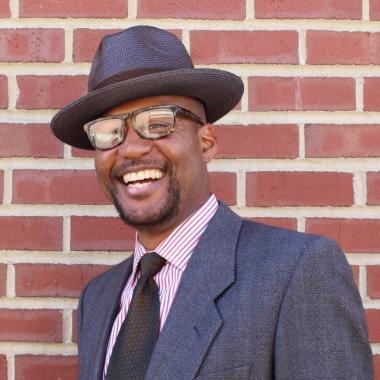The Philanthropic Paradox: Putting Perpetuity over Humanity
Philanthropy is full of paradoxes that hold us back.
As we enter 2024, one of the most troubling philanthropic paradoxes is emerging across the field. Although there is little data to support it, rumblings about a possible recession sent foundations running to shield their endowments and pull back grantmaking. Projecting and misprojecting recessions is nothing new. And neither is this philanthropic paradox. Foundations tend to retreat when they are needed the most. Why? Because foundations are taught to value perpetuity above our collective humanity.
When economic forecasters signal a potential recession, those in powerful financial positions have the luxury of being able to make decisions about how they will weather the storm. Of greatest concern to the foundation sector is that, as institutions fear that their endowments might decline, they tend to reevaluate their grant-making budgets.
Here is where the paradox comes in.
A perceived decline in economic activity doesn’t just affect the for-profit sector alone. Community-based organizations (CBOs) feel the strain most acutely. As employers cut jobs and demand greater productivity from a smaller workforce, and governments cut public programs when facing budget deficits, families that are already financially stressed turn to CBOs for more of their basic needs. Oddly, it is at this time of enormous societal stress, when arguably society needs the most financial support possible from the philanthropic sector that foundations tend to pull back from grant-making. And, in so doing, they act contrary to their missions.
Why?
The answer to this paradox lies in how foundations define “long-term impact.” Often, philanthropy views impact from our perspective as funders. In our minds, we are at the center of social change and are responsible for deciding how to save society. Our funding makes it happen. Our elegant logic models and theories of change sit at the heart of what CBOs, activists, and advocates do each day. Thus, one of the truly honorable actions we take as foundations is to ensure that we, not necessarily our partners, are around forever to provide this essential aid. Perpetuity is paramount, which makes funders protect the endowment at all costs.
When foundation boards show up to their first meetings of 2024, their finance and investment teams might raise the alarm that they need to prepare for a recession or an economic decline (whether one is on the horizon or not). Cemented in the belief that long-term impact is based on their perpetual existence, foundation leaders dissect their financial models to ensure that a recession will not, and cannot, affect their long-term objective to exist forever.
Most foundations base their models of perpetuity on releasing the legal minimum of 5% of their annual assets from their endowments to society. This means that they need to earn more than the legal minimum from the for profit sector to refill their coffers. Thus, when recession strikes, and foundations can’t earn as much, they grow concerned about their long-term impact and how society will suffer if they vanish. Yet they forget that they are not the only ones suffering in the economic downturn. They focus on self preservation and put perpetuity above humanity. Consequentially, CBOs struggle under the weight of having to do more with less, and communities suffer. Meanwhile, foundations hold onto hope that they will be around to address problems in the future, while they ignore the most pressing challenges of the present.
This philanthropic paradox blinds us in foundations to so many critically important realities. If you encounter this paradox during your financial planning in 2024, we urge you to reflect on the following:
-
We as funders do not create impact, it is the CBOs that work tirelessly to serve communities to move us towards a truly free and equitable society.
-
We cannot have impact in the short or long term without effective CBO partners and a healthy nonprofit ecosystem. When we cut back to save ourselves because we fear the uncertainty of our own futures, the levels of deprivation of funding to our partners reaches such critically low levels that they cannot sustain their impact, leading some to simply close down.
Perpetuity is one of the great “fake rules” of the foundation sector undermining philanthropy’s true potential. It pressures us to give the minimum legal 5% of philanthropic assets to nonprofits each year. It pushes us to invest 95% of our dollars in often extractive efforts. And, worst of all, it demands that we give even less when abundant resources are needed most.
What is the good news? The philanthropic paradox is not real. Any foundation has the power to decenter itself - to ask questions about what society really needs, philanthropic preservation, or community investment. The answer is clear - society needs the resources that you steward. Society needs us to show courage, break fake rules, and move resources without concern for legacy, perpetuity, or long-term impact with us at the center.
Sustained or better yet — increased philanthropic support — during recessions allow CBOs to maintain their operations and continue to serve society in a time of greater need. It takes courage to release control of funds after we grant them. It takes deep trust to put the freedom to determine how to use resources in the hands of CBOs when we believe that long-term impact is up to us. Let’s decenter ourselves and our perpetuity to respond to our current economic moment with steadfastness and humility.
Movement change requires cooperation throughout society over time. Foundations’ consistent and persistent support of CBOs determines the momentum of the transformative changes already in action.
To create change, we must be willing to do things in a way that has never been seen before. Join the growing movement of foundations that are putting humanity over perpetuity. Break the fake rules and disrupt the paradox!
Tune into “Break Fake Rules,” a new podcast from the Stupski Foundation
Some rules are better off broken—especially the fake ones! Join Glen Galaich, CEO of Stupski Foundation, in the new limited series, “Break Fake Rules.” The first two episodes featuring Trust-Based Philanthropy Project’s Senior Fellow Pia Infante and Stupski’s Director of Postsecondary Success, Jennifer Nguyen, are out now! Hear from rule breakers in philanthropy, nonprofits, government, and media to learn which challenges they’ve overcome by breaking fake rules and which rules we should commit to breaking together.
Follow “Break Fake Rules” on your favorite podcast platform, and subscribe to the Stupski Foundation YouTube channel to watch abbreviated episodes.
About the Authors
Mari Shimabukuro is a University of British Columbia student and an alumna of the Stupski Foundation internship program.
Glen Galaich, Ph.D., is the CEO of the Stupski Foundation, a private foundation returning all its assets to the communities it calls home in Hawaiʻi and the San Francisco Bay Area by 2029 to support just and resilient food, health, and higher education systems for all. Get more insights from Glen’s Substack, “Who Gives?”.











